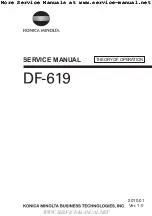Congratulations on your purchase of the 300 Digital Effects System! The 300 not
only contains the finest sounds, as you've come to expect from Lexicon, it
incorporates new functions that satisfy the needs of today's audio production.
Analog and Digital Audio Interfacing
For both analog and digital use the 300 takes full advantage of recent advances
in converter technology and combines them with flexible digital interfacing.
The A/D and D/A converters use oversampling techniques to minimize low-level
distortion and provide linear phase characteristics. 64x oversampling Delta/
Sigma conversion is used in the A/Ds; 8x oversampling is used in the D/As. The
result is sonic transparency without the artifacts normally encountered in
conversion.
The digital I/O simplifies interfacing with both the AES/EBU professional and the
EIAJ consumer format. XLR, RCA and Optical connectors are provided for both
input and output. The digital inputs of the 300 will automatically accept and lock
to any AES/EBU/SPDIF format; the 300's digital output format is user-selectable
for feeding either professional or consumer equipment. This allows for format
conversion as well as using the high quality A/D converters to feed digital
recorders. Control of additional Channel Status information is provided as well.
Dual DSP Architechture
The 300 utilizes two proprietary high performance DSP engines. The configu-
ration of these engines can be determined by the end-user to suit a particular
audio application. The Single Setup configuration unites both DSP engines.
Two “split” configurations: Dual Mono and Cascade, allow each DSP engine to
run a special program especially designed for “Split “ applications. The Single
algorithms include: Random Hall, Random Ambience, Rich Plate, Stereo Pitch
Shift, and Stereo Adjust. The “split" algorithms include: Dual Delays, Chamber,
Mono Pitch Shift, Compressor, a special mastering dither program called PONS
(Psychoacoustically Optimized Noise Shaping), and a small version of Stereo
Adjust.
Comprehensive Effects Automation
The 300 makes effects automation available in three different ways. If you use
time code, the 300's Event List and Time Code Reader add a new twist to effects
processing. Each entry in the 50-item list contains a time code value and a 300
effect preset/register number, allowing incoming time code to trigger setup and
effect changes, as well as setup and effect parameter glides. For changing
effects in music or changing rooms and environments for film and video, the
300's time code capability opens new avenues to all time code users.
Dynamic MIDI
®
is included for real-time performance control and effects auto-
mation. All parameters in the 300 can be patched to most MIDI controllers,
allowing full control from remote devices. For full MIDI automation all parameter
changes can be recorded on any sequencer. For additional control, complete
System Exclusive information is available.
Introduction
Summary of Contents for 300
Page 1: ...300 Digital Effects System V 3 0 Owner s Manual ...
Page 6: ......
Page 9: ......
Page 10: ...1 1 Installing the 300 1 Installing the 300 ...
Page 21: ...2 1 System Overview 2 System Overview ...
Page 30: ...3 1 System Operation 3 System Operation ...
Page 57: ...4 1 The Algorithms and their Parameters 4 The Algorithms and their Parameters ...
Page 93: ...5 1 The Presets 5 The Presets ...
Page 129: ...6 1 Time Code Operation 6 Time Code Operation ...
Page 139: ...7 1 MIDI Operation 7 MIDI Operation ...
Page 147: ...8 1 Troubleshooting 8 Troubleshooting ...


















